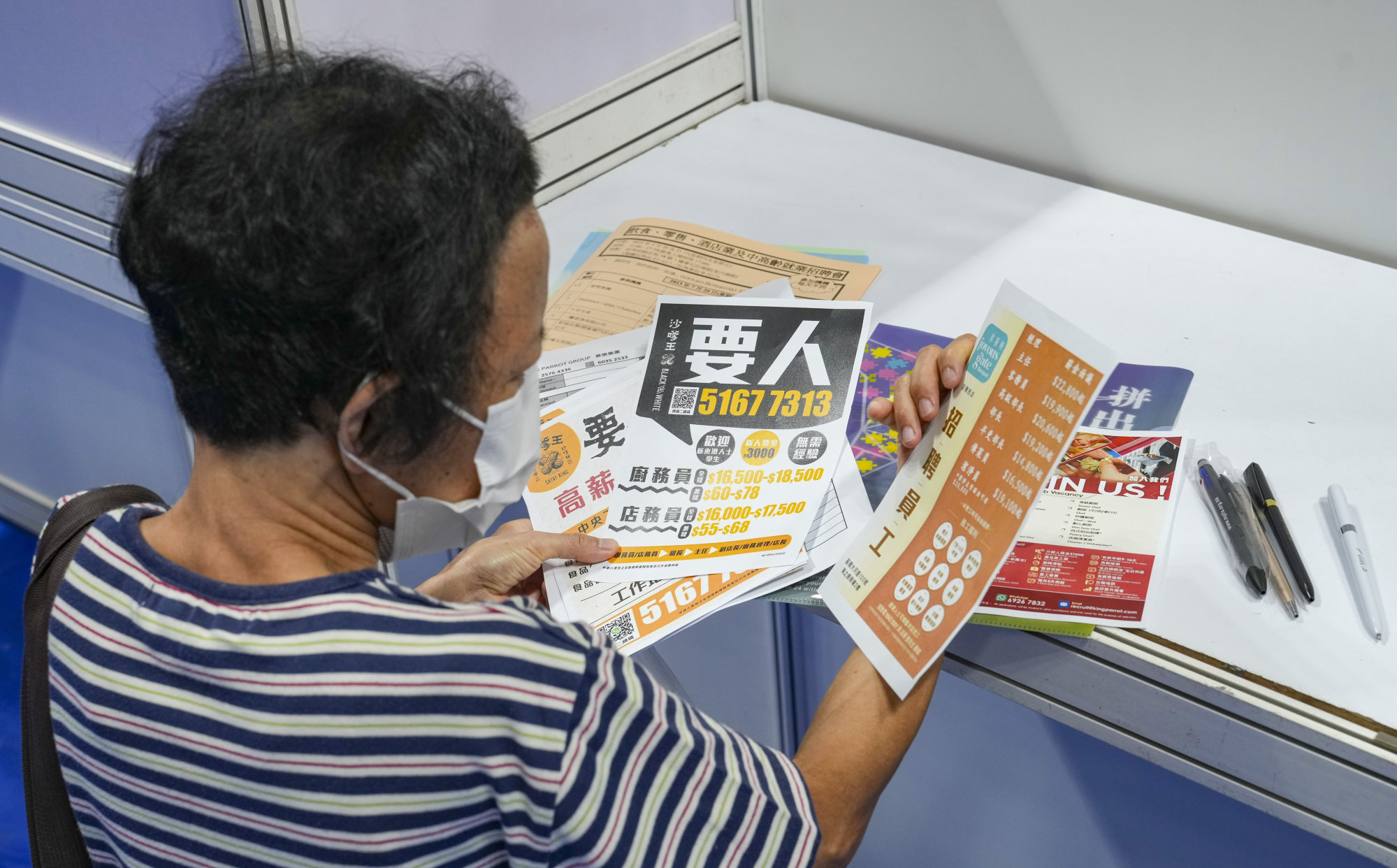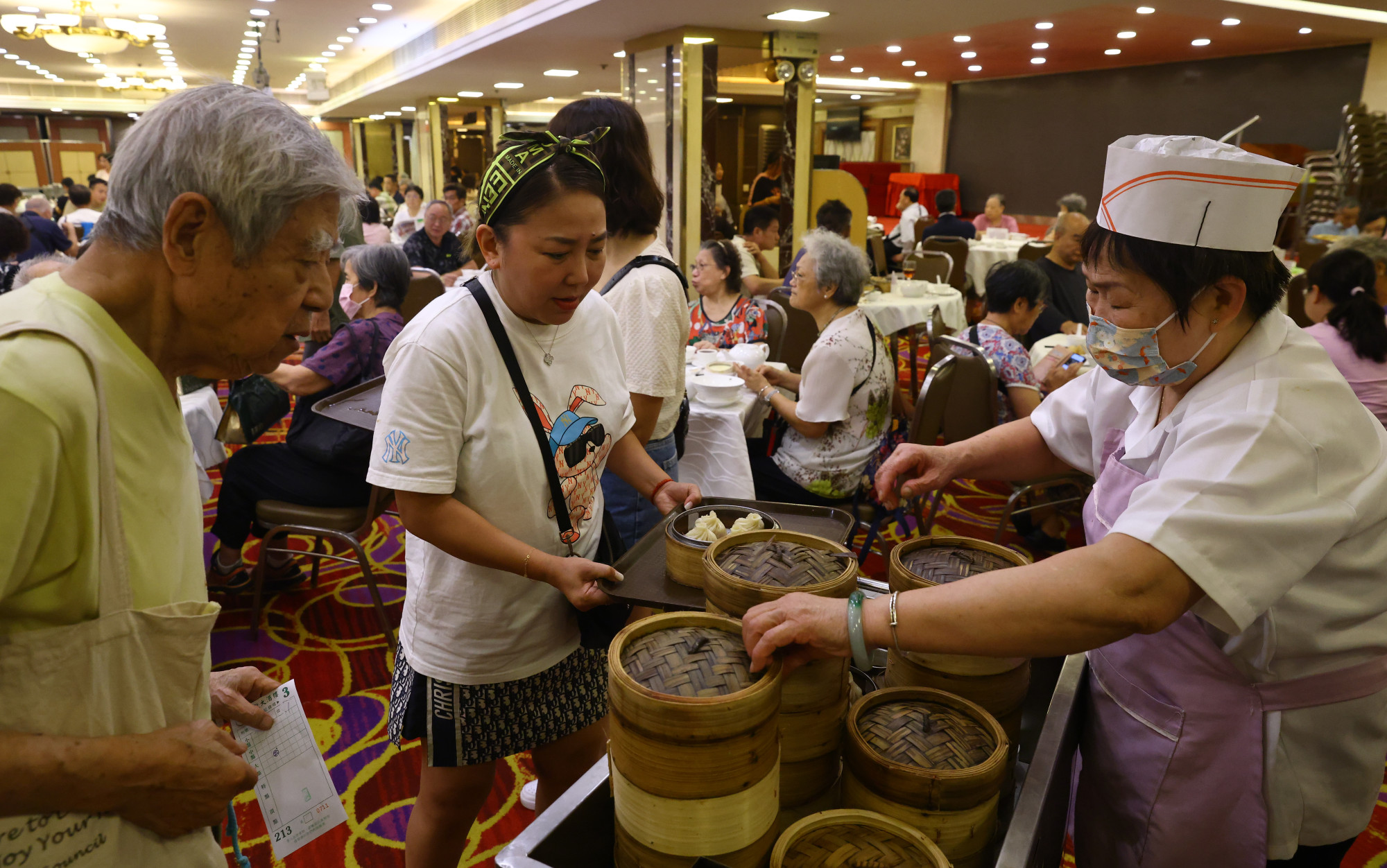
Hong Kong’s business, labour sectors welcome government bid to amend worker protection rule to prevent employers from exploiting loophole
- Employers have taken advantage of loopholes in ‘418’ regulation, lawmaker Chau Siu-chung says
- Under the rule, those working for same employer for four consecutive weeks or more for at least 18 hours each week are entitled to benefits
Hong Kong’s business and labour sectors have welcomed a government proposal to amend a worker protection rule which has been exploited by some employers to avoid providing benefits to staff, with the former calling for a less drastic change.
According to the so-called “418” regulation, those working for the same employer for four consecutive weeks or more with at least 18 hours each week are considered as hired under a continuous contract, and they are entitled to benefits such as rest and sick days, as well annual leave with pay.
But lawmaker Chau Siu-chung from the Federation of Hong Kong and Kowloon Labour Unions on Tuesday said employers had taken advantage of loopholes in the regulation in the 30 years since its enactment.

“An employee normally works for 45 to 48 hours per week and around 200 hours in four weeks in total,” he told a radio show.
“If the employer intends to evade employment benefits, they may ask their staff to work 62 hours in each of the first three weeks and fewer than 18 hours in the fourth week.”
Local media on Monday reported that the Labour Department had proposed amending the law by calculating the total number of working hours based on a four-week period instead of one-week one.
Four proposals for the total number of working hours were floated including 72, 68, 64 and 60 hours.
Scrutiny pledged on high-risk maintenance work in Hong Kong after worker death
Chau supported the move, saying switching to four weeks could help plug the loopholes.
“From the perspective of the labour sector, 60 hours in four weeks seems to offer the highest level of protection for employees,” he said. “It’s actually a threshold. The lower the hours are, the more people will be protected.”
He added that he believed representatives from the labour sector and employers would discuss a proposal that both sides could agree on.
Chau argued that even with the 60-hour threshold, the additional costs for employers would be small.
“Based on an economic assessment carried out by the department, the 60-hour proposal can benefit an additional 70,000 people. The extra salary expense would be HK$850 million (US$108 million) for the whole of Hong Kong,” he said.
“This HK$850 million only accounts for less than 0.1 per cent of the overall salary expense. It means if you pay your employee HK$10,000 a month, it will only amount to a few dollars more.”
In a reply to the Post, the department said the Labour Advisory Board was discussing the requirements for continuous contracts under the Employment Ordinance.
It said the government would report their final decision to the Legislative Council’s manpower panel for consultation within the year, and would proceed with the amendment according to relevant developments.
Simon Wong Ka-wo, president of the Hong Kong Federation of Restaurants and Related Trades, said societal progress over the past 30 years meant it was the right time to review the rule, but called for a “cautious discussion”.

He said he supported the 72-hour threshold as it was simply four times the current minimum of 18 hours per week and would mean the least cost increase for employers compared with the other proposals.
“For many catering businesses under the current economic environment, working hours should be calculated very carefully,” he said on the same radio show. “If we reduce the threshold to 68, 64, or even 60 hours, I don’t think it’s appropriate to be this aggressive at the current stage.”
Wong said that under the 60-hour proposal, employers who wanted to save costs would arrange work for that many hours for staff and might hire additional temporary workers for the remaining 12 hours.
“Under this situation, the employee may have less income as they can only work for 60 hours and may have to find other temporary work. It may complicate the situation,” he said.
Hong Kong transport sector files 118 applications under scheme to import drivers
He warned that the lower threshold could have a significant impact on the catering industry, where about 70 per cent of employees were temporary workers and covered under the “418” regulation.
A survey conducted by the Society for Community Organisation this year found eight in 10 elderly workers did not receive paid sick leave, annual holidays or severance pay, as guaranteed by law.
The concern group said some employers had avoided providing statutory protection to staff in various ways or had simply turned a blind eye to the regulation.
Many elderly workers chose not to settle disagreements, citing fear of reprisal, or they were simply unaware of their rights.
The group said the loopholes had led to many employers hiring elderly workers for casual jobs that involved long hours without basic protection including annual leave, Mandatory Provident Fund benefits and insurance.

